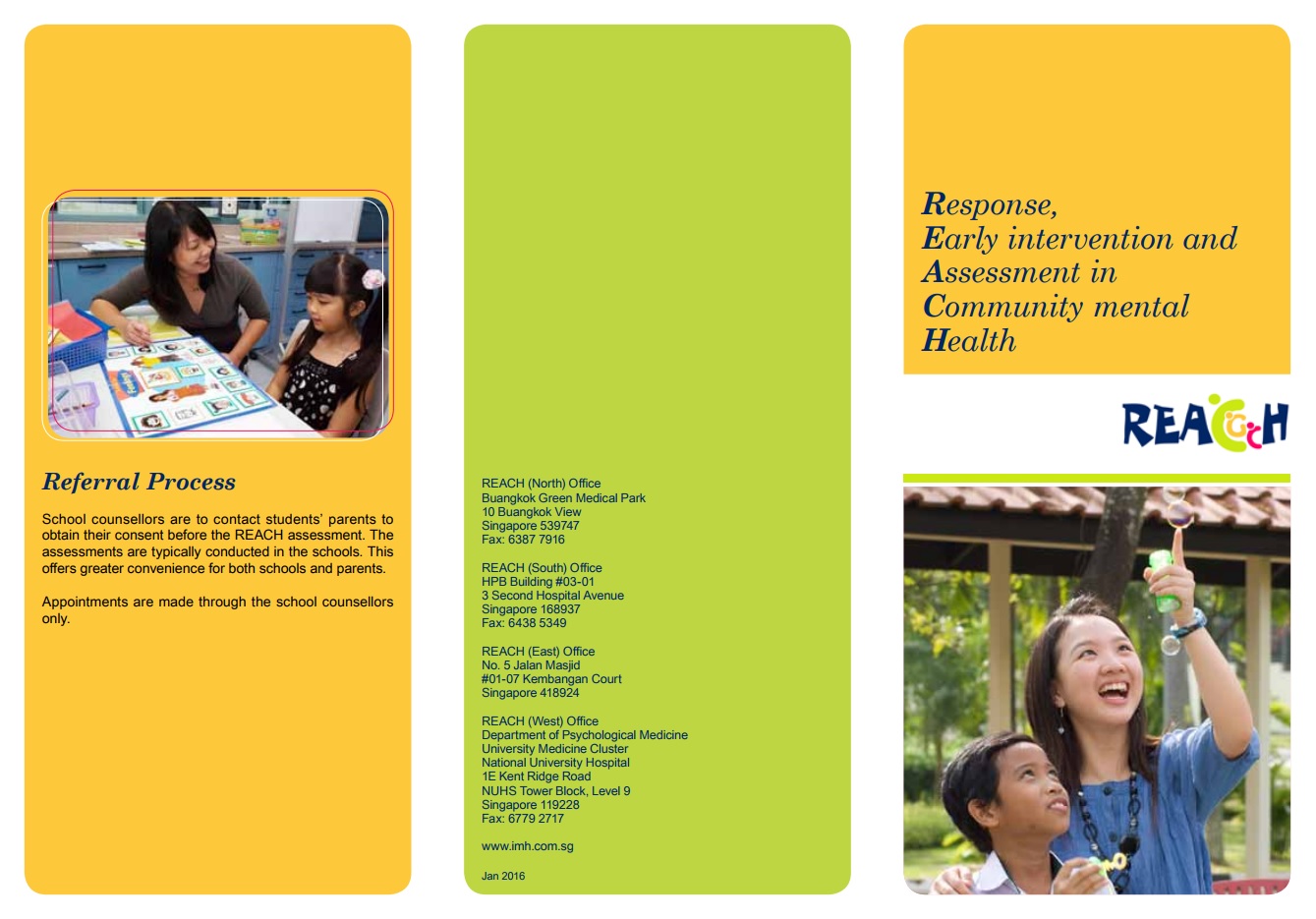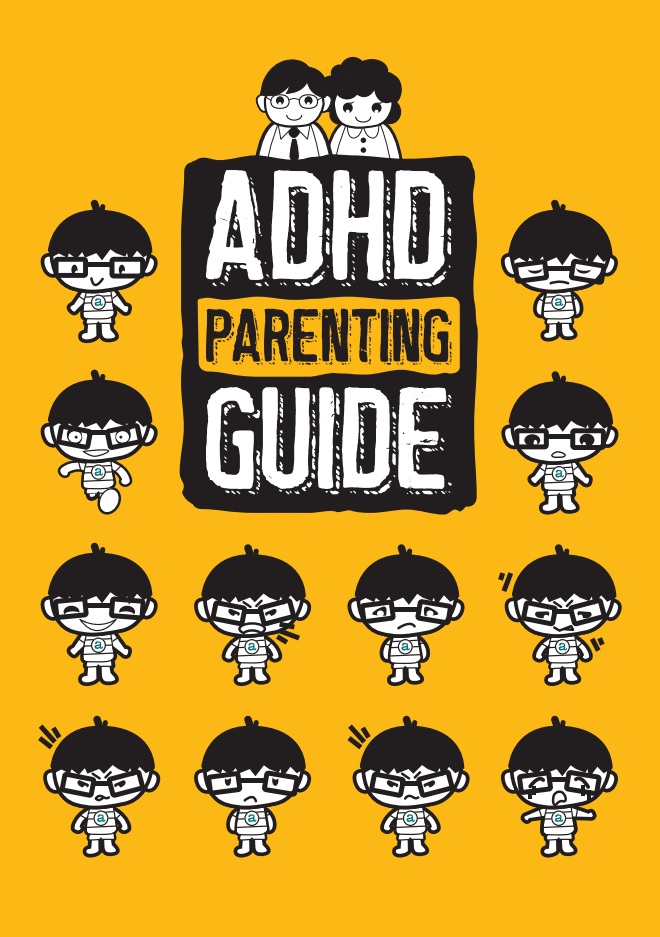REACH is a community-based mental health service set up in 2007, as a programme under the National Mental Health Blueprint, to work closely with schools, community agencies and family doctors to serve the mental health needs of children and adolescents of school-going age. As mental health professionals, we support school counsellors and broaden the scope of the care given to students within the school by taking on the role of consultants and external advocates of mental health in schools.
From March 2011, the REACH (West) team will serve 90 schools in the west school zone. The team consists of psychologists, medical social workers, occupational therapists and nurses from the Department of Psychological Medicine, National University Hospital.
The REACH teams work primarily with MOE school counsellors and VWOs for early identification, support and intervention for children and adolescents with emotional and behavioural difficulties and related mental health problems in primary and secondary schools and junior colleges. The teams provide training, support and helpline assistance to the school counsellors to identify and support these students aged 19 years and below. The teams also work with general practitioners in the community on the diagnoses and management of emotional and behavioural difficulties as well as related mental health problems.
Associate Professor John Wong, Programme Director, REACH (West) at NUH says, “The REACH (West) programme is a component of the strategic partnership between the Ministry of Education and Ministry of Health in school-based mental health promotion. Implemented by the National University Hospital and Institute of Mental Health, it is an important extension of community-based mental health support and care for our schoolchildren and teenagers in the western school zone of Singapore. This strategic programme testifies to the commitment of the partners investing in resources to provide our schoolchildren and their teachers with quicker access to mental health support and clinical services when required. More importantly, the focus on promoting emotional and mental well-being will provide greater reach for the excellent school-based programmes MOE already has in place. We hope the new network will grow to reach the hearts and minds of children and adolescents, helping them to achieve greater emotional and mental well-being!”



